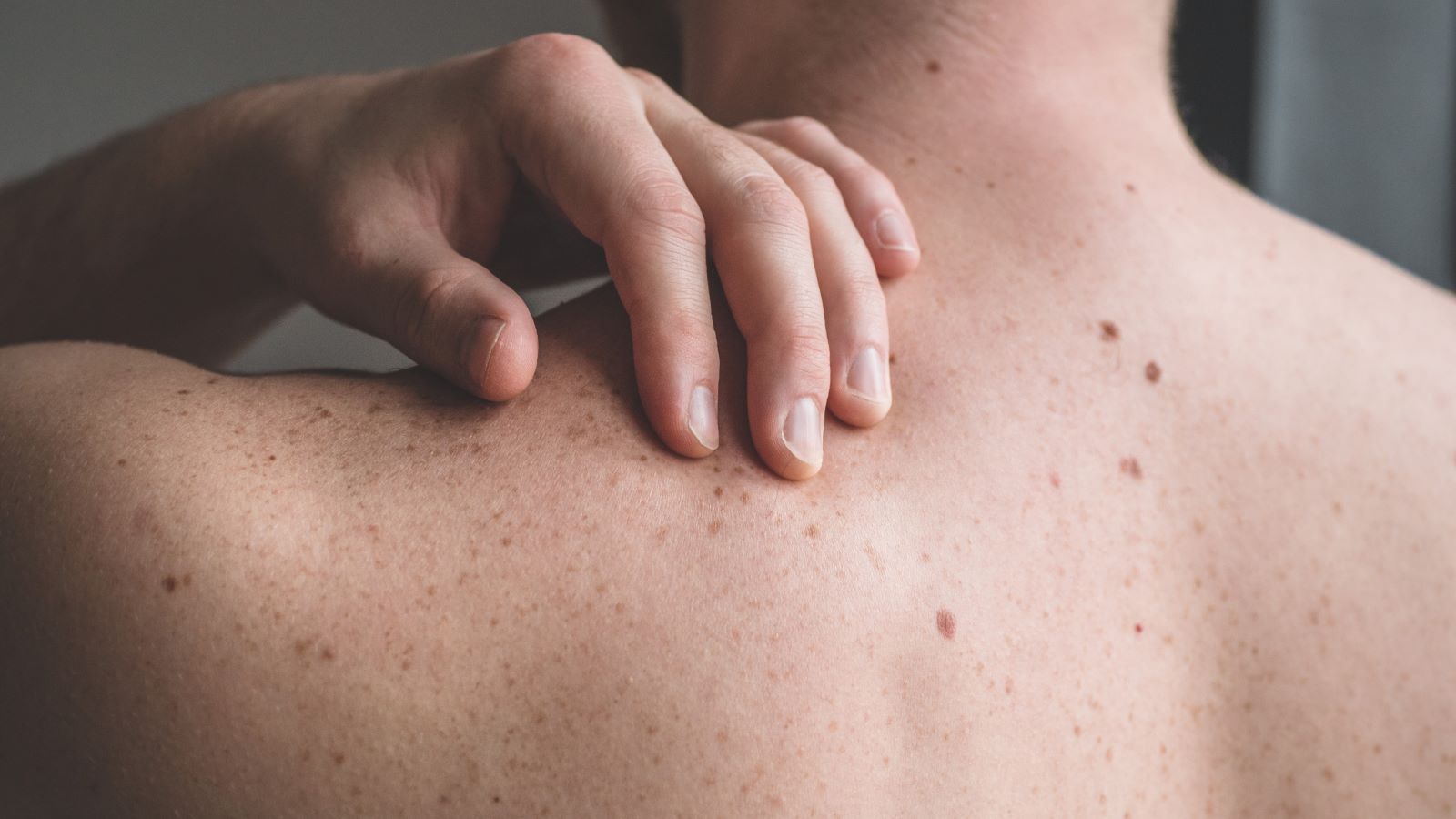<< Back
5 Risk Factors for Skin Cancer You Should Know

May 07, 2024
Before you hit the beach, is your skin cancer check-up booked?
It should be, says Dean George, MD, the medical director of cutaneous oncology at Hartford HealthCare Cancer Institute.
“Screenings can find potential problems very early on,” he says. Early detection can help people live longer, which is true not only for skin cancer but also for other kinds of cancer.”
Here are the risk factors for skin cancer that you should know.
5 risk factors that make early screening necessary.
Regular skin cancer screenings are necessary for everyone of all skin tones.
But, as Dr. George shares, it may be even more essential for you.
Here are five risk factors you need to know:
- Fair skin: You may have skin that burns easily. If you have blonde or red hair, you also have less melanin that protects the skin’s DNA from damaging UV radiation.
- Lots of moles: The more moles you have on your body, the higher your melanoma risk. Large moles (bigger than the tip of a pencil eraser) or atypical moles also increase this risk.
- Extra sun exposure or use of indoor tanning: Increased UV exposure can lead to skin cancer.
- History of sunburns: Increased DNA damage can amplify your overall risk and lead to skin cancer.
- Family history of skin cancer: A genetic predisposition to certain skin cancers may increase your overall risk.
“Your doctor should examine any changing or symptomatic lesion as soon as possible,” adds Dr. George. “This may include itchiness, raised edges, or open sores that don’t heal or keep coming back.”
> Related: Your Summertime Guide to Preventing and Detecting Skin Cancer
What to expect at a skin cancer screening.
During your skin cancer screening appointment, your dermatologist will examine your skin closely. They will look at existing moles and birthmarks and any areas that look abnormal in color, size, shape, or texture. This visual examination only takes about ten minutes.
There are many types of skin cancer and precancerous lesions your provider will look for:
- Actinic keratoses (AK): A precancerous skin growth caused by sun damage.
- Basal cell carcinoma (BCC): The most common type of skin cancer.
- Squamous cell carcinoma (SCC): Often caused by exposure to sun UV rays.
- Melanoma: The most serious skin cancer, but the five-year survival rate is 99 percent when detected early.
> Want more health news? Text StartHere to 85209 to sign up for text alerts
Early detection can catch cancer before it spreads.
If symptoms appear, the cancer may have already spread.
“This is why skin cancer screenings are so important,” emphasizes Dr. George. “We can find abnormal tissue or cancer early.”
Early detection gives you more access to less invasive and localized treatments. It can also increase survival.
Screenings should be once a year, and more often for some people.
For most people, skin cancer screenings happen just once every year.
“Although, if you’ve previously had skin cancer, every 3 to 6 months may be more appropriate,” says Dr. George.
While dermatologists are the most qualified to perform skin cancer screenings, your PCP can refer you for a suspicious lesion.
“You can also protect yourself between screenings,” Dr. George adds. “Sun protection and regular self-skin checks are important year-round.”